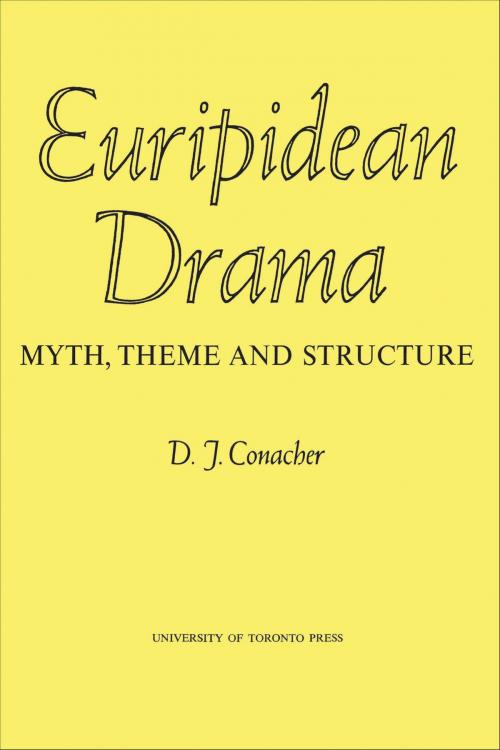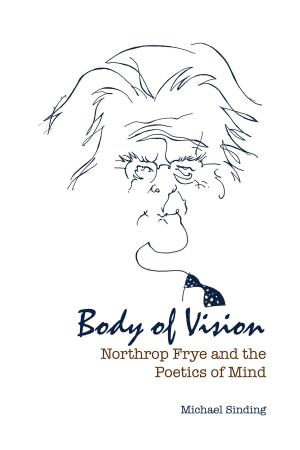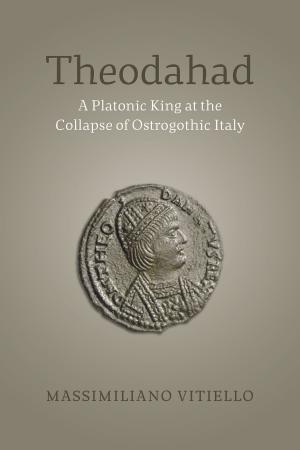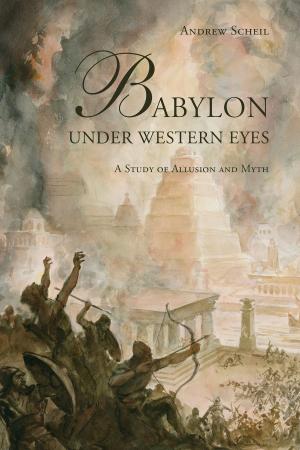Euripidean Drama
Myth, Theme and Structure
Nonfiction, Entertainment, Drama, Greek & Roman, Fiction & Literature, Literary Theory & Criticism, Ancient & Classical| Author: | Desmond Conacher | ISBN: | 9781442637597 |
| Publisher: | University of Toronto Press, Scholarly Publishing Division | Publication: | December 15, 1967 |
| Imprint: | Language: | English |
| Author: | Desmond Conacher |
| ISBN: | 9781442637597 |
| Publisher: | University of Toronto Press, Scholarly Publishing Division |
| Publication: | December 15, 1967 |
| Imprint: | |
| Language: | English |
It is a commonly held view among historians of Greek literature that with the advent of Euripides the tragic structure, even the tragic outlook of Greek drama suffered a breakdown from which it never recovered. While there is much truth in this opinion, it has tended to put too much emphasis on "Euripides the destroyer" rather than "Euripides the creator." In this study the author's main purpose is to redress the balance and to discuss the structure and techniques of Euripidean drama in relation to its new and richly varied themes.
The consistent dramatic form evolved by Aeschylus and Sophocles had grown out of their conception of tragedy as the resultant of the tension between the individual will and the universal order suggested in myth. For Euripides, who never fully accepted myth as the real basis of tragedy, alternate ways of using the traditional material became necessary, and the playwright continually changed his dramatic structure to suit the particular tragic idea he was seeking to express. Viewed in this way, Euripides' dramatic technique may be seen in positive as well as negative terms—as something other than the breakdown of structural technique and mythological insight under the overwhelming force of his ideas. Professor Conacher offers here a new view of Euripides as the first Greek dramatist properly to understand the world of myth, and so, in a sense, to stand a bit outside it. He shows how Euripides, far from being an impatient or incompetent craftsman, used traditional mth as a basis for inventing new forms in which to cast his perceptions of the sources of human tragedy.
All the extant Euripidean drama is examined in this book; the result is an intelligent guide to the plays for all students of dramatic literature, as well as a convincing defence of Euripides the creator.
It is a commonly held view among historians of Greek literature that with the advent of Euripides the tragic structure, even the tragic outlook of Greek drama suffered a breakdown from which it never recovered. While there is much truth in this opinion, it has tended to put too much emphasis on "Euripides the destroyer" rather than "Euripides the creator." In this study the author's main purpose is to redress the balance and to discuss the structure and techniques of Euripidean drama in relation to its new and richly varied themes.
The consistent dramatic form evolved by Aeschylus and Sophocles had grown out of their conception of tragedy as the resultant of the tension between the individual will and the universal order suggested in myth. For Euripides, who never fully accepted myth as the real basis of tragedy, alternate ways of using the traditional material became necessary, and the playwright continually changed his dramatic structure to suit the particular tragic idea he was seeking to express. Viewed in this way, Euripides' dramatic technique may be seen in positive as well as negative terms—as something other than the breakdown of structural technique and mythological insight under the overwhelming force of his ideas. Professor Conacher offers here a new view of Euripides as the first Greek dramatist properly to understand the world of myth, and so, in a sense, to stand a bit outside it. He shows how Euripides, far from being an impatient or incompetent craftsman, used traditional mth as a basis for inventing new forms in which to cast his perceptions of the sources of human tragedy.
All the extant Euripidean drama is examined in this book; the result is an intelligent guide to the plays for all students of dramatic literature, as well as a convincing defence of Euripides the creator.















